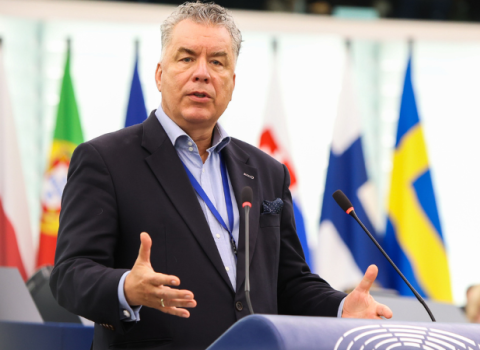How can wireless communication contribute to smart cities, climate-friendly farming or improved security? Through the new Strategic Research Initiative, 'Wireless Beyond Telecommunication', KTH is bringing together leading researchers to explore how wireless technologies can have a societal impact beyond traditional telecommunications applications.
New directions for wireless technology
One of the initiative's key strengths is that it brings together researchers from a variety of disciplines, including wireless communications, radar systems, signal processing, cybersecurity and autonomous systems. The aim is to encourage interdisciplinary collaboration to drive innovation and strengthen KTH’s position as a leader in this rapidly evolving field.
“This is not just about improving existing telecom technologies,” says Joachim Oberhammer, PI of this strategic research initiative. “We want to explore how these technologies can be applied in entirely new areas to serve society.”
Wireless solutions for real-world challenges
Wireless technologies are playing an increasingly important role in addressing societal challenges. They can facilitate the monitoring of farmland by drone, enable non-destructive testing in construction and create energy-efficient solutions for smart cities.
“There’s also a growing need for secure, distributed communication systems in both civilian and defence applications,” says Joachim Oberhammer.
Support for researchers through workshops
In its first year, the initiative will organise a series of workshops, at KTH, nationally, and at the European level. The goal is to identify synergies between research groups. The initiative will also offer travel grants and support for writing research proposals.
Experts united across disciplines
The initiative is driven by researchers including Joachim Oberhammer, Emil Björnson, Oscar Quevedo Teruel, Dimos Dimarogonas, Panagiotis Papadimitratos, James Gross and Gabor Fodor. Together, they represent a broad spectrum of expertise — from hardware to software, including network/system security and signal processing.
“We aim to generate entirely new ideas by connecting experts from different fields. Interdisciplinary collaboration is where the most original research happens,” says Umer Shah, coordinator of the initiative.
This article was first published on 19 July by KTH.





 A unique international forum for public research organisations and companies to connect their external engagement with strategic interests around their R&D system.
A unique international forum for public research organisations and companies to connect their external engagement with strategic interests around their R&D system.